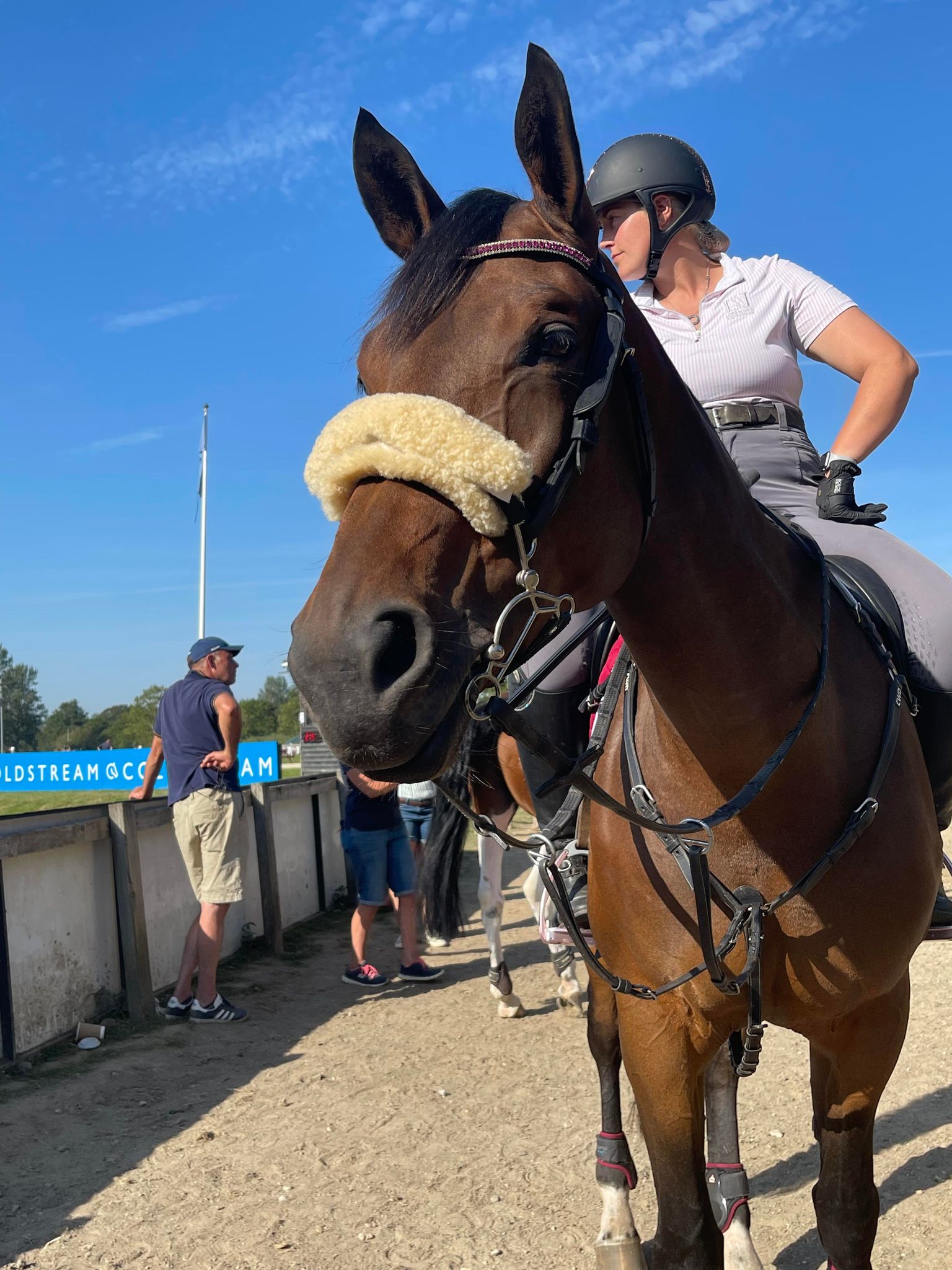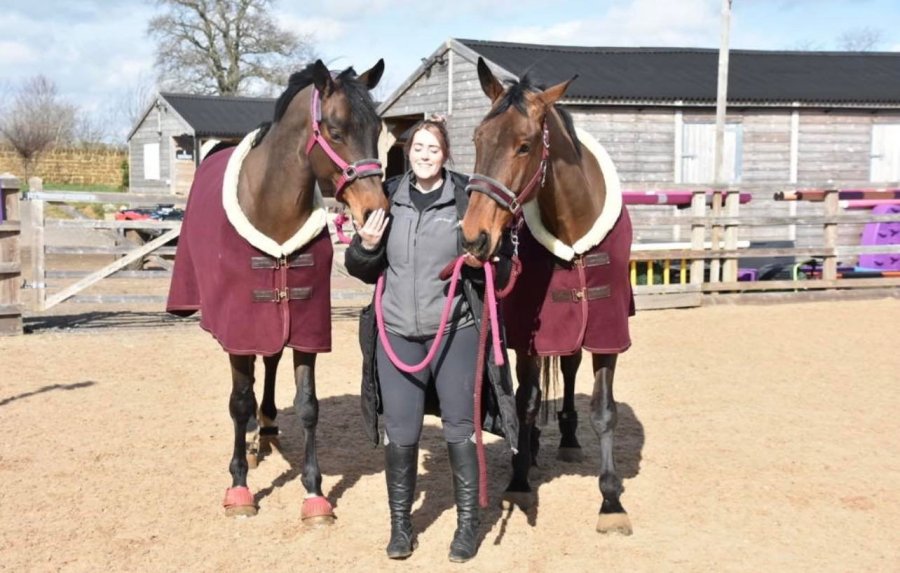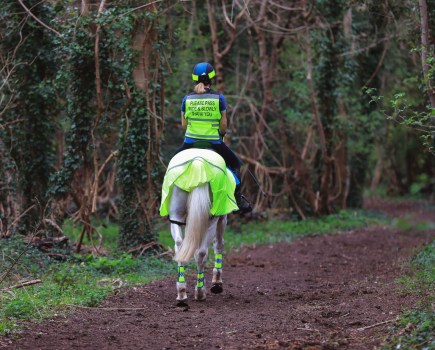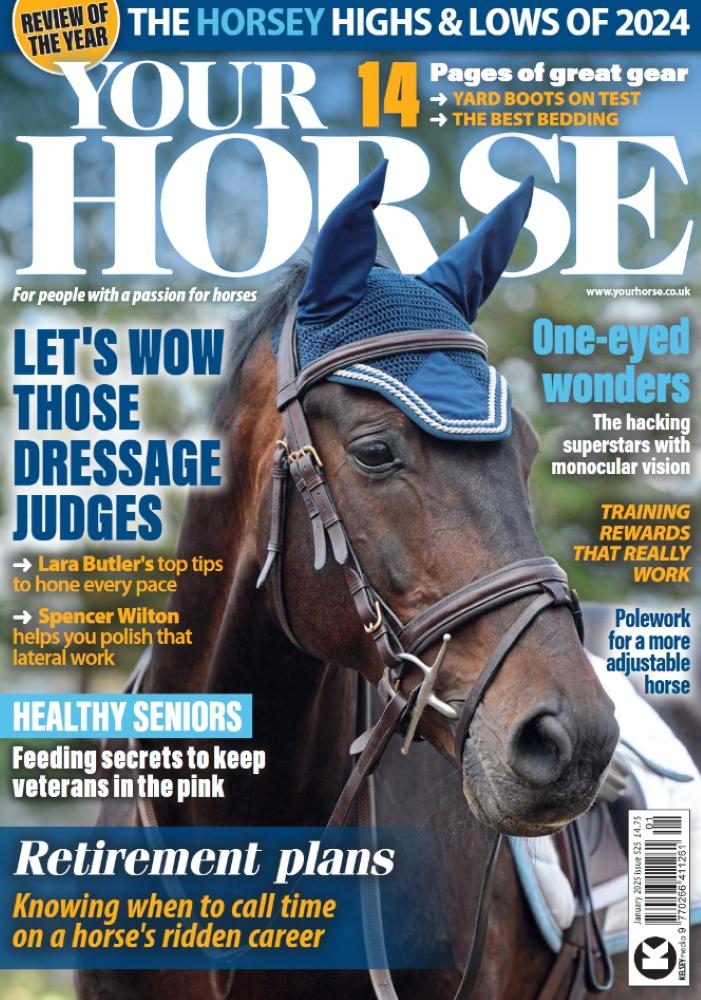A rider has opened up about her hidden disability in an effort to raise awareness of such conditions and the private battles many have to endure.
Showjumper Jennie Sharpe suffered a life changing injury in 2018 and was diagnosed with Couda Equina Syndrome. She had emergency spinal surgery, her L5/S1 collapsed and crushed her nerve canal and she was left with permanent damage, including numbness in her right leg and foot, and no bladder and bowel function.
 A year ago she had emergency surgery again as the disc had bulged, then a week later she had another operation to repair a tear in my spinal fluid sac, which was leaking and causing extreme pain, fits and blurred vision. Jennie is now awaiting her next procedure to fit a colostomy bag.
A year ago she had emergency surgery again as the disc had bulged, then a week later she had another operation to repair a tear in my spinal fluid sac, which was leaking and causing extreme pain, fits and blurred vision. Jennie is now awaiting her next procedure to fit a colostomy bag.
Despite all this, she is still in the saddle and enjoying her horses. She currently competes Extreme Forest (Forest) at 105 and Kanini TCS (Bertie) at 2* international.
Jennie said she wanted to speak about her condition to make others aware of disabilities that cannot easily be seen and are not easily spoken about.
“I promised myself when I got out of hospital last year I would never hide my true self from anyone again,” she said.
Jennie shared details of her “left hand side” show day preparation, including having to wear a “giant nappy” in case she “has an accident”.
“Fast forward a few hours and I’m all smiles aboard my gorgeous horse,” she said.
“An invisible disability […] can include brain injuries, chronic pain, mental illness, gastro-intestinal disorders, and much more. Because they’re not obvious to spot, invisible disabilities may be overlooked and misunderstood.
 “I will continue to go on [about these conditions] until we all can be a little kinder to each other and little less judgemental.
“I will continue to go on [about these conditions] until we all can be a little kinder to each other and little less judgemental.
“Disabilities can come in many different forms. Most people are familiar with a “visible” disability; a neighbour down the street uses a wheelchair or a friend of a friend has a guide dog, but what about someone with a disability that’s not visible? An invisible disability is just as life-affecting as a visible one, but they’re not as talked about and easily understood.
“It’s important to change the way we talk and think about invisible disabilities. Open communication and open minds are key.
“You have no idea what’s going on behind closed doors. You do not know what it has taken for that person to be at a show, whether it physically or mentally. Just take a little time before you make a back-handed comment, or a snide remark with your mates in the canteen.
“You only see a person’s ‘public’ face, you have no idea what they’re going through in private… you may not understand what problems or issues they have that they do not share with anyone.”










